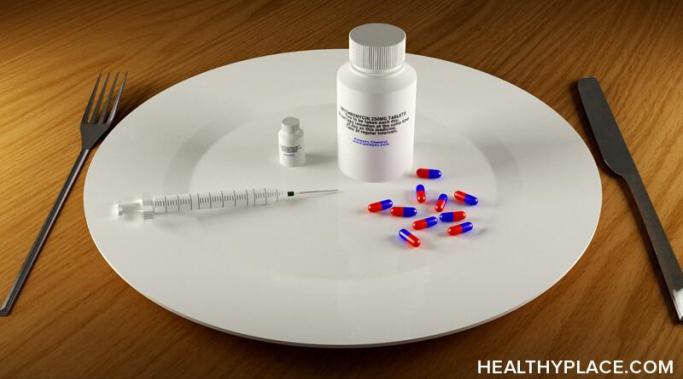I've had the signs of mental illness in my life since I was a child but didn't receive treatment until I was 19-20; so, why didn't I get treatment for bipolar disorder earlier? This is a question that many people ask themselves, and different people answer it in different ways. One of my major reasons for not getting bipolar treatment sooner involves antipsychiatry.
Bipolar Treatment – Breaking Bipolar
Sometimes, you can't get to a doctor's appointment because you're just too sick. You might have too much anxiety to leave the house. You might be too depressed to get out of bed. You might be incapacitated by mental illness to the point where you can't get to a doctor's appointment when you need it the absolute most. This is a real barrier to mental health care that some people face. Read on for tips on what to do next.
Going off bipolar medication is a bad idea -- well, it's almost always a bad idea. I know why people want to do it. I would suggest that pretty much everyone on bipolar disorder medication has wanted to go off of it multiple times during treatment. This is completely normal and almost unavoidable. In spite of this strong desire, though, going off bipolar medication is almost always a bad idea.
Medication failure is not bad. Don't get me wrong, I know that it feels really, really bad, but just hear me out on this one: even though it feels terrible, a failing medication is not bad.
Medical consensus in psychiatry is critical. Many people do have many opinions, of course, but understanding psychiatric medical consensus is what makes all the difference. If you have 1000 psychiatrists in a room, after all, you can be guaranteed someone is going to disagree on any subject, but who do you believe, the 999 or the one? And is a medical consensus in psychiatry worth more than the opinion of psychiatric patients?
I recently came across someone who said she was taking bipolar medications to please others and not because she wanted to, herself. She vowed to get off of them and never take a pill to make other people happy again. If this is the case, if she really is taking bipolar medication to please others, I would suggest that's a problem but I think it's important to think carefully about it before actually deciding to reduce or get off of medications. Are you really taking bipolar medication only to make others happy? The ramifications are big so it's important to be sure.
It's normal to want to give up on treatment for bipolar disorder if treatment keeps failing. Believe me, I get this. I've been there. It's understandable. Failure after failure after failure is really hard to deal with and it's tempting to want to give up. But should one really give up on bipolar disorder treatment ever?
You have to consider the risk vs the reward in the treatment of mental illness. Well, actually, you have to consider the risk vs the reward in many things but it's particularly critical when you're talking about the treatment of an illness. This is because nothing comes for free. No medication (or alternative treatment, for that matter) comes without side effects. You have to be aware of this going in so you can make a good decision. You have to understand risk vs reward in the treatment of mental illness.
Medication noncompliance in bipolar disorder is generally considered a bad thing -- and it generally is -- but can medication noncompliance ever be a good thing? I would say so, in very limited situations. Read on to see why medication noncompliance in bipolar disorder can occasionally be a good thing.
Making doctors listen to you is actually a tall order. I know it seems like it shouldn't be, but it is. If you read my piece last week, "Psychiatrists Won't Listen to Patients -- 8 Reasons Why," (applicable to any type of doctor) then you have an idea as to why. So while last week I focused on the problem, this week I want to focus on the possible solutions. Here is what you can do to make doctors listen to you.









